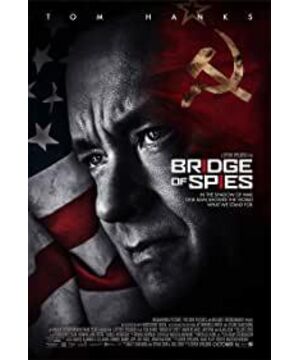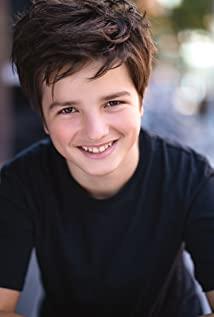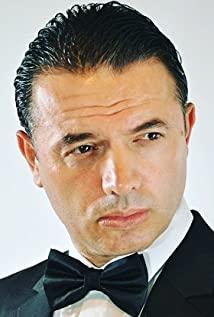I looked at the poster before, and I was particularly worried that Tom Hanks would act as an undercover enemy camp, suffering and depressed hard-working spy. I didn’t expect that the protagonist’s identity in the movie was not an agent at all, but an errand for the agent. Lawyer. So when the protagonist appeared soon and received the commission to defend the Soviet agents, I began to suspect that perhaps it was justified to classify this movie as an agent movie based on the title. The following story mainly revolves around the court trial, which makes me wonder again whether this film will be like the director's upper film "Lincoln", which mainly demonstrates the legal spirit as the foundation of the country through a large number of verbal indoor scenes. When it comes to about one-third of the film’s performance, it is actually done roughly as I guess. The protagonist insists on fulfilling the obligations of a defender to the client in accordance with the principles of law, while others, including judges and CIA detectives The officials, as well as the public, all preconceived that they sentenced the Soviet agents to death in their hearts, believing that the court trial was just a cutscene. The one that impressed me the most was that after Tom Hanks discussed the case with the judge and got a mess, he came out in the evening and was called for tea by a CIA agent. Then the two had a discussion about "rules". The lawyer played by Tom Hanks said that it is because of the rules that you, a German, and I, an Irish, can live here reasonably and legally together as an American. The rules they discussed were of course different from the rules of the rivers and lakes in "Old Paoer", which should refer to respect and obedience to the Constitution. What the rules guarantee is not necessarily justice, but a kind of sustainability. The significance of the rule is that every time it is quoted, the vitality of the entity it guards increases by one point, not the other way around.
The court scene, which was supposed to be an important part of the movie, ended soon. Although he lost the case, he won the client’s exemption from the electric chair. The protagonist, who loves to be a bit horny, felt that the previous trial process was sloppy and insisted on appealing. The strong dissatisfaction of the public has also threatened family members. He’s already unlucky enough here, but even more unlucky is still waiting for him, and compared with the next thing, the previous encounters are simply not worth mentioning, because he is going to Berlin, and as we all know, many people The Germans are busy moving bricks there for an important construction project. When the protagonist had bargained with the judge, he said that he would leave the Soviet agent with his life. In the future, if one of his agents falls into the enemy's hands, he can still exchange it, and the result is a truth. The government feels that since this person has such a high level of professionalism and speaks so accurately, it should send him to negotiate. From the beginning of the story to the present, the protagonist has always adhered to the correct beliefs, did not do one thing wrong, did not say a word wrong, but ended up in deeper and deeper trouble. However, it is this kind of fate that can be the protagonist.
The next story is that the protagonist who is almost isolated and helpless sneaks into a hostile environment to perform a secret mission. It becomes a bit like "Argo F[bee]k Yourself" who defeated "Lincoln" and won the Oscar for Best Picture. (It seems to be called this title). This part of the job is not the protagonist of an agent to a large extent but has begun to play the role of an agent, so so far this film has thrown off the title of the party hat, and has returned to the type of agent. The filming of this section is very relaxed and relaxed, because the director also knows that blindly forcing the protagonist and letting the audience follow him with a nervous breakdown is not good, so more elements are integrated in this section. As mentioned at the beginning of this article, last year’s other spy movies on the big screen were full of scenes of bang bang ha ha ha ha ha ha ha ha ha ha ha ha ha ha ha ha ha ha ha ha ha ha ha ha ha ha ha ha ha ha ha ha ha ha ha ha ha ha ha ha ha ha ha ha ha ha ha ha ha ha ha ha ha ha ha ha ha ha ha ha ha ha ha ha ha ha ha ha ha ha ha ha ha ha ha haha scenes in general, but the details should have a lot of entertainment elements in the details, although this film is not the same. Both bang and hahaha, just missing hahaha. The top prosecutor in East Berlin who answered the wrong phone and his little secretary with good English were both talented and cute. But the most impressive thing is the three counterfeit relatives of the Soviet agents. Tom Hanks, who was surrounded by them, seemed to say, "Are you guys invited by Maozi?"
What makes this movie very comfortable is that the director used some subtle expressions. For example, when the American pilot gave in, the interrogator said that as long as he confessed, he could go to bed. The next shot was to turn off the lights. After shooting the pilot's explanation, the audience would understand what was going on. Some art film directors will over-correct, in order to avoid being too straightforward to explain the plot, they simply go to the other extreme, making the film too obscure, ignoring some background knowledge in their minds that the audience actually does not possess. This kind of director, who is demanding on the audience, is a bit overbearing, and the president makes people sit up and move on their own.
The kind of implicit display mentioned in the previous paragraph is often achieved through contrast, and this contrast is often for advanced blackness. For example, when the film finally returns to his country, he sees a child [beep] wall that reminds the protagonist of being in Berlin witnessed a night of horror when people attempting to cross the Berlin Wall were shot and killed; at first glance, the trials of enemy spies by the two countries were chaotic courts in the United States and low quality of the people. It’s more fair, but it actually implies "At least people on our side can still say no." In the end, the comparison between the treatments of the agents of the two countries after the exchange is also very obvious, and the two treatments were predicted by Soviet agents before. : Get hugs or get directly stuffed into a car; in fact, the establishment of the agents of the two countries is a kind of all-round comparison. It should be reflected-although your Soviet agents are not much higher than our country’s, but No matter how good the individual is, the poor system is useless. Our Great America has calculated one or two wastes, but we must be the one who laughs last, just so confident. But I still feel that the United States has already consumed its opponents in the Cold War. I still don’t forget that it’s a bit unkind to whip and whip the corpse on the opposite side every now and then. Moreover, just judging from the endings of the realistic prototypes of the main characters in the film, it seems that it does not really reflect the superiority of the Great America. In the end, the American pilot died at a young age. It was the Soviet agent who spent a happy life with his family. In the history of the exchange, he was not directly stuffed into the car, but was embraced by his comrades. , So Spielberg is a bit dark and dark on the bridge.
At the end of the film, the director also seemed to have a feeling of "I can't make up the fuck anymore", and simply added subtitles to explain the future stories of these main characters. Someone might think that the sharp contrast between the two countries' spy life endings is a bit of a self-slap in the face? In fact, what I want the director to express is that the two spies and the American student who can unfold the next life story is the result of the hard work of the protagonist James Donovan. Do not directly evaluate the quality of the system, but implement it to specific people. This is the key to the good-looking American theme movie.
Generally speaking, this is a comfortable movie with the main theme. There is no big surprise, but the process of watching it is definitely a pleasure. It was also shortlisted for the best picture of this year’s Oscars, but it seems that the demand for awards is not particularly high. I myself still hope that it will have good luck. Nothing else, just because of the comfortable feeling it gives people, or more direct, because it has a considerable degree of entertainment. In recent years, Oscar judges often seem to be deliberately avoiding the entertainment function of movies, and they are increasingly developing in the direction of high music and few. I still miss those Oscar-winning movies of the 1990s, such as "Forrest Gump" and "Titanic". At that time, the films that the judges liked were also liked by most audiences.
View more about Bridge of Spies reviews











